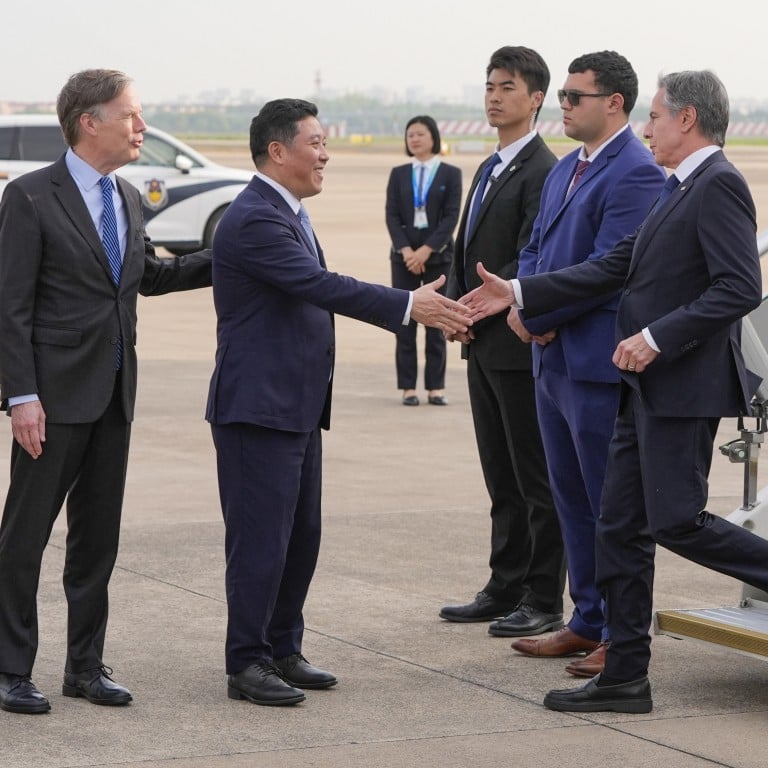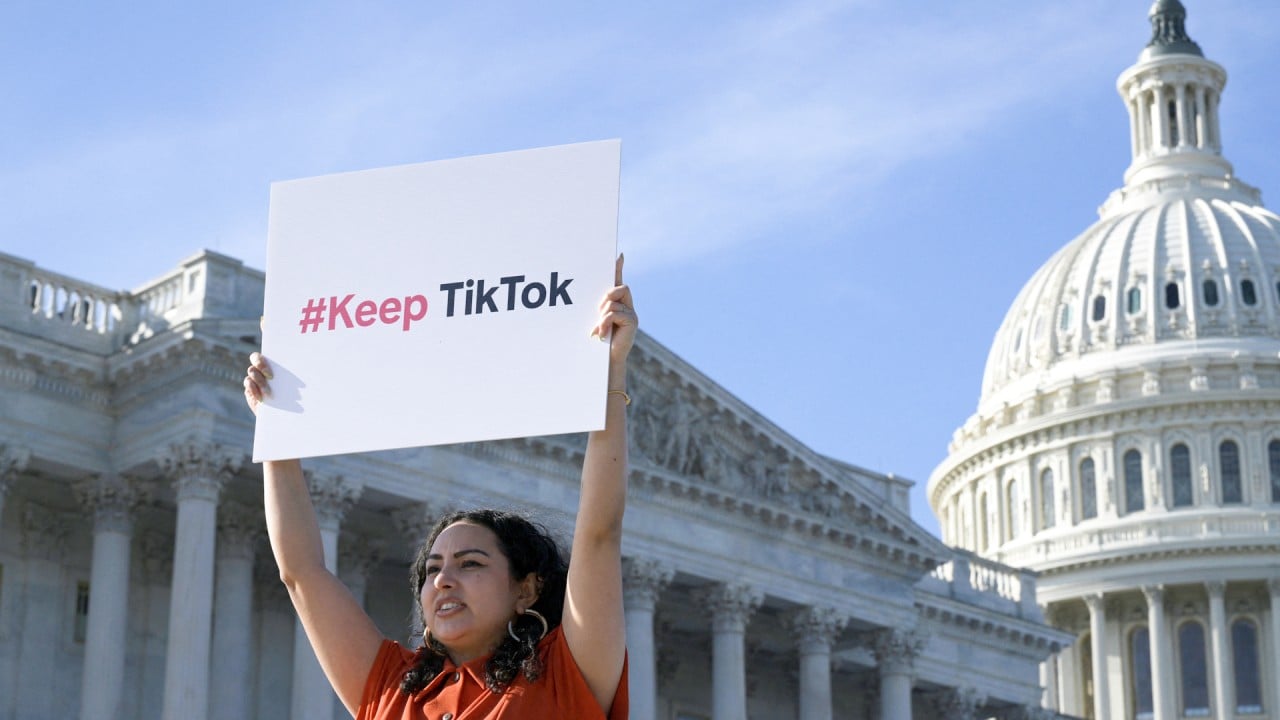
US Secretary of State Antony Blinken arrives in China hours after Senate TikTok ban vote, new funding for Taiwan
- Blinken to meet US business community in Shanghai before talks with counterpart Wang Yi and possibly President Xi Jinping in Beijing, Reuters reports
- Trade and Ukraine likely topics on agenda, with Blinken expected to pressure China to urge its firms to stop supplying dual-use goods to Russia
Blinken, who has promised “intensive face-to-face diplomacy” during his stops in Shanghai and Beijing, is expected to stand firm on American interests while also attempting to stabilise bilateral relations.
Arriving in Shanghai on Wednesday afternoon, Blinken was greeted at the airport by US ambassador Nicholas Burns and the director of the Shanghai government’s foreign affairs office, Kong Fuan.
He is expected to meet the American business community in the city before travelling to Beijing to meet his counterpart Wang Yi and possibly President Xi Jinping on Friday, according to Reuters.
US is ‘stubbornly’ trying to contain China, Beijing says ahead of Blinken visit
Blinken’s visit comes hours after the US Senate passed a bill to order short-video app TikTok to be divested from its Chinese parent company ByteDance, as well as a US$95 billion aid package for Israel, Ukraine and Taiwan.
All are issues straining US-China relations and among topics to be discussed in Beijing.
In a move seen as “showing restraint”, the Chinese foreign ministry did not directly respond to questions on how Beijing would react to the potential ban on the popular social media platform.
Einar Tangen, senior fellow at the Beijing-based Taihe Institute, said China valued dialogue with the United States despite the restrictions imposed by Washington, such as on trade and technology.
But “mixed messages” from the Americans ahead of important talks made things difficult.
“There’s a continuing reminder here that the US needs China to solve issues … whether you’re talking about Ukraine or Palestine, Iran … [or] trade,” he said.
“Beijing would love to make some progress. But how do you do that if you keep slapping me?”
TikTok may be banned in the US. Here’s what happened when India did it
Chong Ja Ian, an international relations professor at the National University of Singapore, said a possible TikTok ban was unlikely to dominate Blinken’s talks in China, as his agenda seemed “very full already with topics ranging from Russia to Taiwan to the South China Sea and beyond”.
China has long been against what it calls the West’s “unilateral” sanctions against Russia and Chinese companies, but has urged the US not to make this a bilateral issue.
The Middle East is also expected to figure in Blinken’s talks with his counterpart Wang in Beijing.
The US is likely to repeat its call that China use its influence to deter Iran, which attacked Israel after its consulate in Syria was bombed, while Beijing is expected to urge Washington to support a ceasefire in Gaza.
Briefing reporters ahead of Blinken’s arrival, a Chinese foreign ministry official called on both sides to implement the consensus on bilateral ties reached by Xi and US President Joe Biden at their summit last year.
Meeting in California on November 15, the two leaders agreed to manage tensions through a range of working groups. More than 20 consultation mechanisms had been “established or restored” since then, the official said, including on security, economy and finance, and climate change.
Military to military communication is back on track, and official and business exchanges have also intensified, with Xi receiving US businesspeople and Treasury Secretary Janet Yellen visiting China over the past month.
China and Russia eye stronger intelligence and law enforcement ties
However, despite increasing dialogue, the US continues what China calls a “containment” drive aimed at Beijing.
Besides the potential TikTok ban, Washington is weighing a hike in tariffs on Chinese metals, investigating Chinese electric vehicles for security risks, while strengthening defence alliances in the Indo-Pacific.
In response to the new funding for Taiwan, the Chinese foreign ministry on Wednesday repeated its call for the US to stop arming the island, saying this would only escalate tensions.
“China will closely follow the trends of relevant [US] bills and take resolute and effective measures to safeguard its sovereignty, security and territorial integrity,” spokesman Wang Wenbin said.
Beijing sees Taiwan as part of its territory awaiting reunification, by force if necessary. The US, like most countries, does not recognise the self-governed island as independent, but is opposed to any attempt to take it by force and remains committed to supplying it with weapons.

 - Kawala Xie.jpg?itok=NogZcyZ-&v=1661304068)
